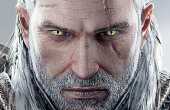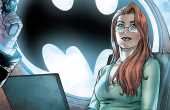Pamela Maria
Pamela is an MA candidate in Experimental Digital Media with a BA in Rhetoric and Literature. Her research intersects: digital humanities, monstrous lit theory, & pop culture.
Contributor II
- Lurker
- Pssst
- Hand Raiser
- Sharp-Eyed Citizen
- Town Watch
- ?
- Articles
2 - Featured
2 - Comments
71
- Ext. Comments
43 - Processed
22 - Revisions
16
- Topics
5 - Topics Taken
2 - Notes
53
- Topics Proc.
162 - Topics Rev.
51
- Points
1175 - Rank
77 - Score
874
Latest Articles
Latest Topics
The Rise and Fall of the Assassin’s Creed EmpireOnce hailed for its attention to detail, fascinating back story, and historical accuracy, the Assassin’s Creed’s legacy has slowly begun to diminish. As a fictional universe, it can be expected that not all historical features will be completely accurate, but has the furthering of plot and milking of the franchise begun to corrupt the series as a whole? Analyse the historical periods that the franchise has covered as well as which games most effectively combined the assassin trope within its historical context. This article would also try to avoid “playability” as an argument (e.g. Black Flag: is it fun to play? Sure. Are assassin’s and pirates accurate? No.) From this regard, an article like this could also look into what the true identity of Assassin’s Creed is and whether game-play and the templar plot-line is more crucial than its historical back drop. It would also need to consider whether Assassin’s Creed Origins was an attempt of getting rid of the series’ baggage and whether its new format can help bring the series back to its former glory.
|
A New Type of Hero? The Prisoner Archetype in the Elder ScrollsThroughout literature and games studies there have been many kinds of heroes (such as the Romantic hero and its offset the Byronic hero) and different hero archetypes (the unwilling hero, the anti-hero, etc.) However, amongst these categories for characterization, has Bethesda in its Elder Scrolls Series created a new heroic archetype? With the start of every game, the player starts off as a prisoner of unknown cause. By the completion of the main quest line, they are renowned as a hero for the ages: (The Agent, The Nerevarine, The Hero of Kavatch, The Dragonborn, etc.). Analyze the significance of "the prisoner" archetype as the starter for all major heroes in the Elder Scrolls Universe. A great place to start in terms of research would be the Elder Scrolls podcast: Written In Uncertainty which deals with the metaphysical aspects of the Elder Scrolls. Episode 10 talks about this while listing in-game and real-world sources that would be of great value to consider. Other areas of research good include looking at the moral ambiguity players can embody and whether these correspond with existing archetypes.
|
The Power of Fanfiction: a rise in transmedia storytellingAs our world is becoming more socially digitized and interactive, it is undeniable that fandoms have become important aspect in keeping franchises alive, but how important has fan influence become? Transmedia is a growing technic narrators’ in franchises have begun to use in which a single story is told across multiple platforms and adaptations. Although transmedia’s rise through social media and influence have been covered in a few topics and articles on the artifice before, how has fan fiction influenced transmedia storytelling? Examples may include looking into fanon versus canon and instances where a highly popular canon has become fanon (such as Matt’s appearance in the anime Death Note). Another important aspect to look into is the “Boba Fett Phenomenon” where a side character becomes so wildly popular within the fandom that a franchise is forced to give them a backstory and more character development. Although I struggled to find a source for this, I remember my Digital Media professor once discussed that there was a scandal in the Dr. Who fandom where a popular fanfiction actually guessed the fate of the current season. The fan who had written the story was sworn to secrecy or told to change their story (can’t recall exactly…) as to preserve the integrity of the show. Regardless, I think this is another example where fan fiction was integrated as an unauthorized expansion within a universe (and therefore has become a piece of transmedia storytelling). A great theorist for transmedia and fan fiction is Dr. Henry Jenkins.
|
The Gray Area Between Good and EvilWithin comics and movies, heroes have slowly been developing more flaws while villains are beginning to produce a more human face. More so, with the rise fandoms, readers and fans have begun to appreciate both; picking favourites and encouraging this type of development for characters. By examining older heroes and villains and how they have developed/changed over time, as well as, the rise of the "flawed hero" and the "human villain", are we slowly entering an age where there is no right answer? Or will "true villains" be forced to be purely "evil"? Analyze both the negatives and positives of this within a writing context — will this change how plots and characters are being written? Will the definitions of what a "villain" or "hero" are, have to change? And will this bring in a new era of "grey" as opposed to the archaic, early form of writing that was strictly black and white? Or is our perception of the "character", "plot" and writing becoming deeper and more advanced?
|
Batman Arkham Knight: Destruction of Characterization?An extremely popular and successful franchise, the Batman Arkham series is yet another universe added to the Batman canon. However, the latest addition to the series brought in the controversial role of Jason Todd — the former "second" Robin who had been murdered by the Joker — as the "Arkham Knight" and main antagonist of the game. Most fans expressed their outrage for the use of Todd's character and the way it was conveyed within the Arkham Verse, along with (yet again) using the over saturated Joker trope, and Batman's decision with the "Knightfall Protocol". Was this addition to the gaming series poorly plotted out? And most importantly: was the characterization of these iconic characters destroyed by the Arkham verse canon?
|
Latest Comments
| Disability in Comics: The Misconstrued Representation | |
Loved this article and the nostalgia it brought back! Funny enough, as a child I adored all these child-horrors such as Scary Stories, Goosebumps, Scooby-doo, and Courage but I don’t stomach horror too well as an adult (“IT” and “Haunting of Hill House” were phenomenal but gave me nightmares for weeks). Curious to see if there’s a correlation between how horror is catered to children and its extremity for an adult audience. | Scary Stories: In Defense of Horror for Children |
Great article and analysis of the “dead parent” trope. I think you hit the nail on the head at the end of your article. What makes Batman and his origin story so appealing is his humanity. His tenacious self-motivation and extreme discipline makes him heroic as opposed to super powers. Despite his trauma, there’s a part of him that we all see in ourselves. | Why Has Batman's Origin Remained So Iconic? |
Excellent writing and very thought-provoking. I think an analysis of this film is an excellent way to address moral ethics since its epic Black cast helps to defamiliarize “normal” Western behaviour that viewers are accustomed too. | The Moral Horror of Black Panther |
Thank you so much! | The Witcher Series: The Mastery of Adaptation |
Thank you so much! The novels delve more into folklore, while the games expand more upon Polish Romantic nuances, but I definitely encourage experiencing both mediums to help get a rounded feeling of the universe | The Witcher Series: The Mastery of Adaptation |
thank you so much! If you loved playing the game I would definitely encourage you to get into the novels as well. They truly are excellently written and help give a more rounded feeling to Sapkowski’s universe | The Witcher Series: The Mastery of Adaptation |
Thank you very much! Yes absolutely CD Projekt Red is very thorough and passionate when it comes both to developing and researching. They handle ceoticisms very well. I think a major reason as to how that may contribute in terms of plot is because of their cooperation with Sapkowski to expand the series within his vision of the universe that keeps it so authentic to his novels. | The Witcher Series: The Mastery of Adaptation |


Apologies for posting again on this, I did not notice that I replied to my own article instead of replying to you directly.
Thank you for your comment! You are correct, using bound is not the correct use of the term, and changing it to something along the lines of “Disability in Comics” or “The Misconstrued Representation of Disability in Comics” is far more appropriate and less ableist. It was a mistake that myself and the 6 other reviewers did not notice when this was initially published three years ago. Unfortunately, once articles are published they cannot be revised by the writer. I’ll speak to admin to see if this is possible.